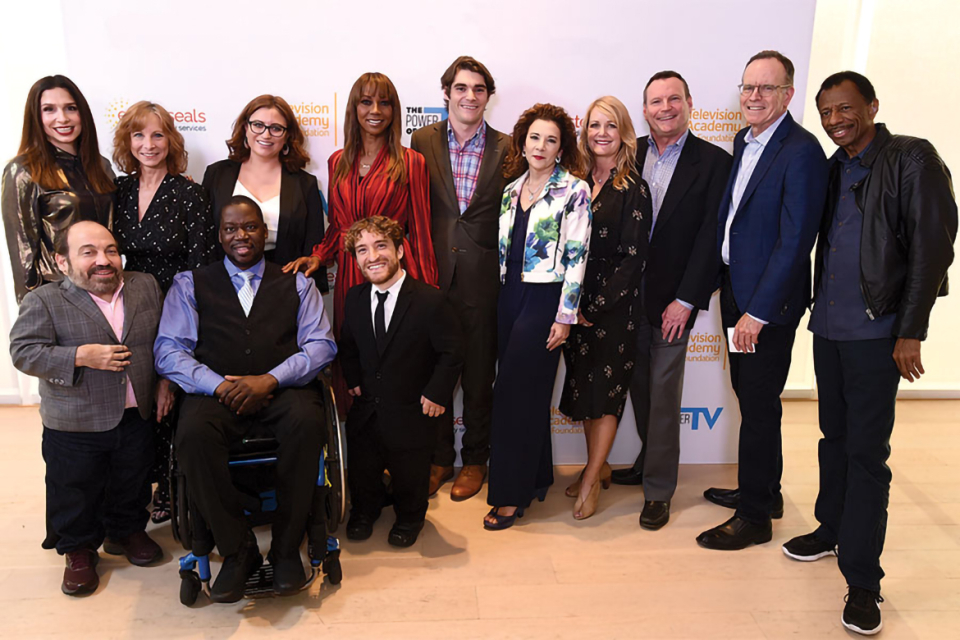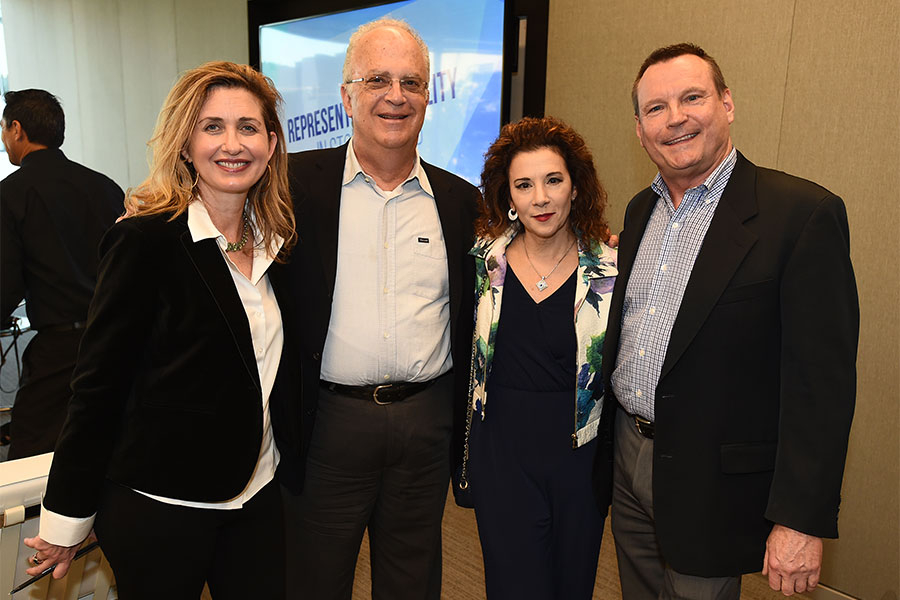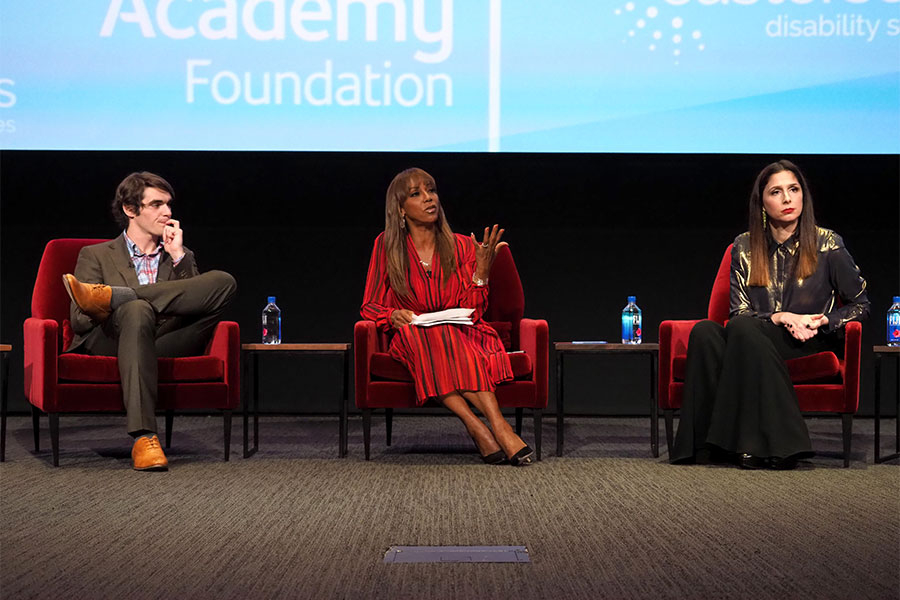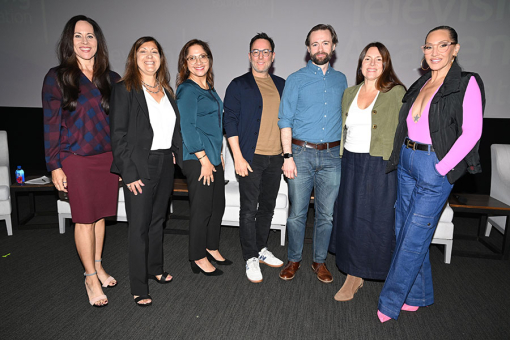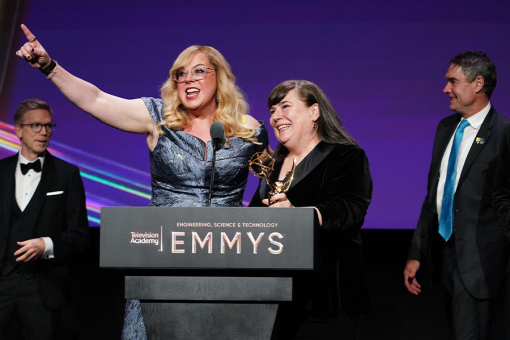When actress Shoshannah Stern and her writing partner Josh Feldman, who are both deaf, decided to create a series about two best friends, they initially made one character deaf and the other hearing.
But after trying unsuccessfully to sell the show, they decided to make both characters deaf and produce it themselves. Their YouTube pilot was seen by a production company and ultimately led to the 2018 show This Close, the first straight-to-series order on SundanceTV's streaming platform Sundance Now; it's been picked up for a second season.
"[Viewers are] so conditioned to see two people on TV, one deaf and one hearing — that's always what it's been like," said Stern, who uses sign language and an interpreter. "We were pitching it because we thought that was the only way we were ever going to get to do it. But we started thinking, 'We don't want to do it this way. Why can't both characters be deaf?'"
Portraying characters with disabilities authentically on television was among the topics discussed at "The Power of TV: Representing Disability in Storytelling," presented by the Television Academy Foundation in partnership with Easterseals in celebration of the organization's 100th anniversary.
Joining Stern on the panel, held April 24 at the Academy's Saban Media Center in North Hollywood, were actors Daryl "Chill" Mitchell (NCIS: New Orleans) and RJ Mitte (Breaking Bad, Now Apocalypse); Jonathan Murray, creator–executive producer, Born This Way; Krista Vernoff, executive producer–showrunner, Grey's Anatomy; and Katherine Pérez, executive director of the Coelho Center for Disability Law, Policy and Innovation.
Actress Holly Robinson Peete, who has a son with autism, moderated.
Though persons with disabilities comprise the largest minority in the U.S. (one in four Americans has a disability), only 2.1 percent of characters that are series regulars have a disability, according to a 2018 GLAAD report.
"People say to me, 'You're the only black actor on television in a wheelchair,'" recounted Mitchell, who had a paralyzing motorcycle accident in 2001. "I'm not proud of that. That's unreal. Not being represented is scary."
Representation is crucial, agreed Vernoff, whose show's casting director, Linda Lowy, makes an extra effort to cast actors with disabilities to play characters with disabilities.
"People [with disabilities] aren't seeing themselves. People get empowered through seeing themselves represented, and other people feel more comfortable with that minority by seeing them. The failure to include people of all types in our storytelling is a wrong that all of us in Hollywood have to make right."
Fear of the unknown helps feed a reluctance to hire persons with disabilities, Stern believes. She and Feldman hired 17 deaf people for This Close; the deaf crewmembers were the first to arrive on set and the last to leave.
Authentic representation means moving away from the longtime so-called "medical model" of portraying disability as something "bad and sad," noted Perez, who has a psychiatric disability, and moving toward the "social model": celebrating disability and viewing it, she said, "as a community, a culture, a political minority. It means portraying people with disabilities just how we live in everyday life."
That portrayal has brought hope to viewers. Murray's A&E reality series, Born This Way, chronicles young adults with Down syndrome who are leading productive lives.
He described emails he's received from parents who'd learned they were going to have a child with Down syndrome. "The doctor painted a very dark picture for them," Murray said. "But they saw Born This Way and they realized, it doesn't have to be dark. Their child can contribute to their family and to their community."
To achieve representation on television, Mitte, who has cerebral palsy, advocates doing just what Stern and Feldman did: creating one's own opportunities.
"When you're hitting that wall, being marginalized or discriminated against, you don't have to go that [traditional] route anymore," he counseled. "New media is here, new platforms, new abilities. Now we have the ability to get ourselves to the table, to present ourselves, so when we finally meet that opportunity and we're in the position to claim power, we can claim it and we can hold it."
To view a video of the event, go to TelevisionAcademy.com/Power-of-TV.
This article originally appeared in emmy magazine, Issue No. 5, 2019

